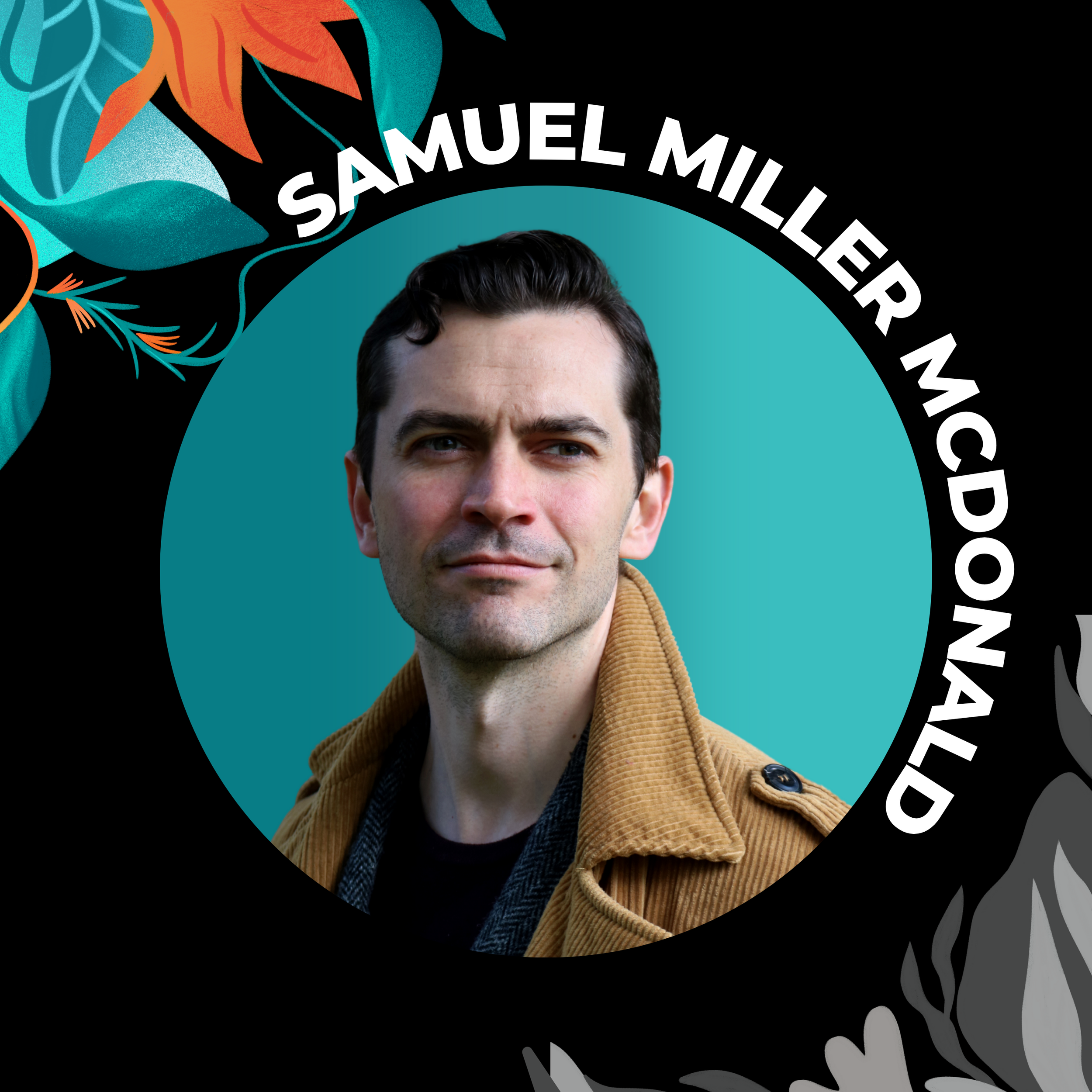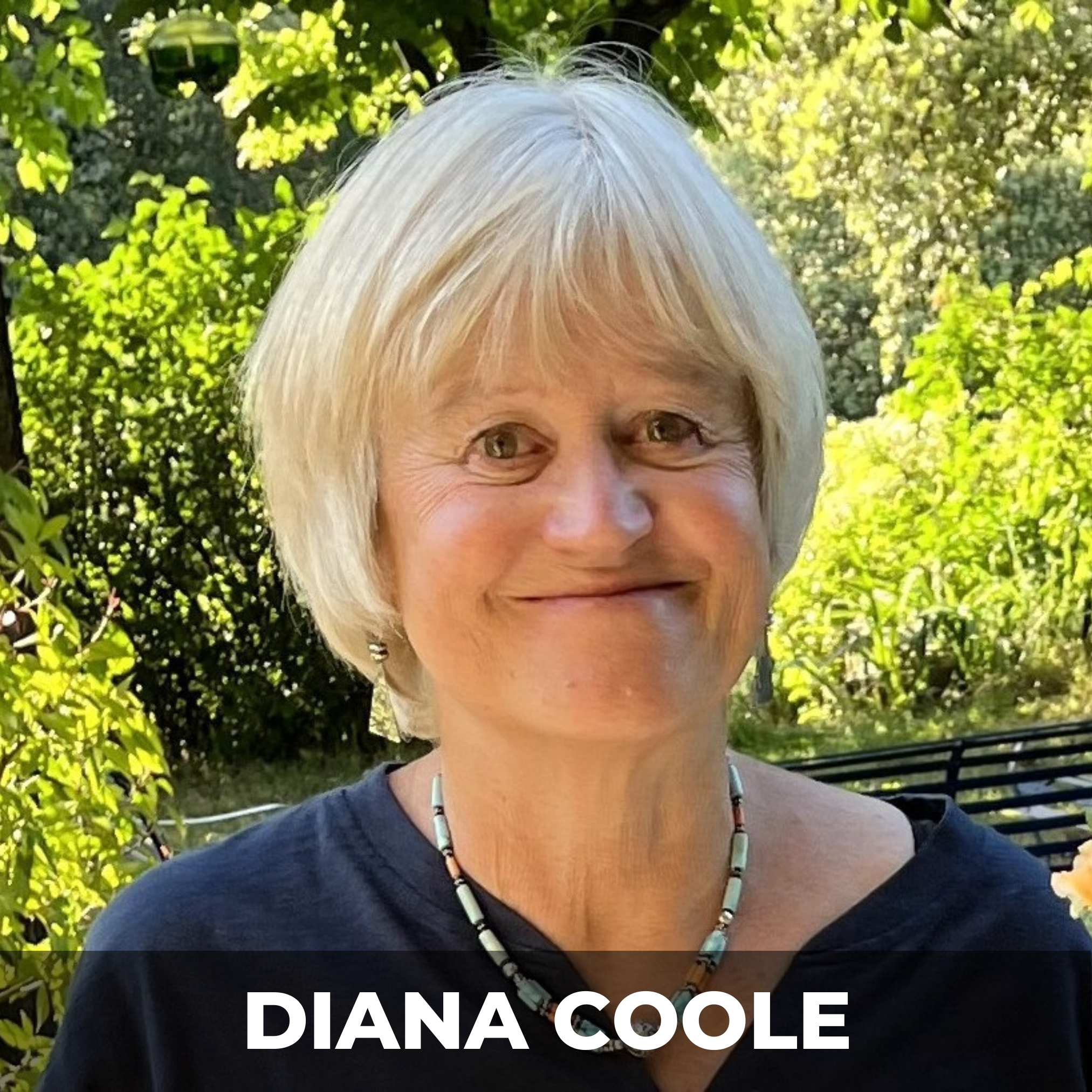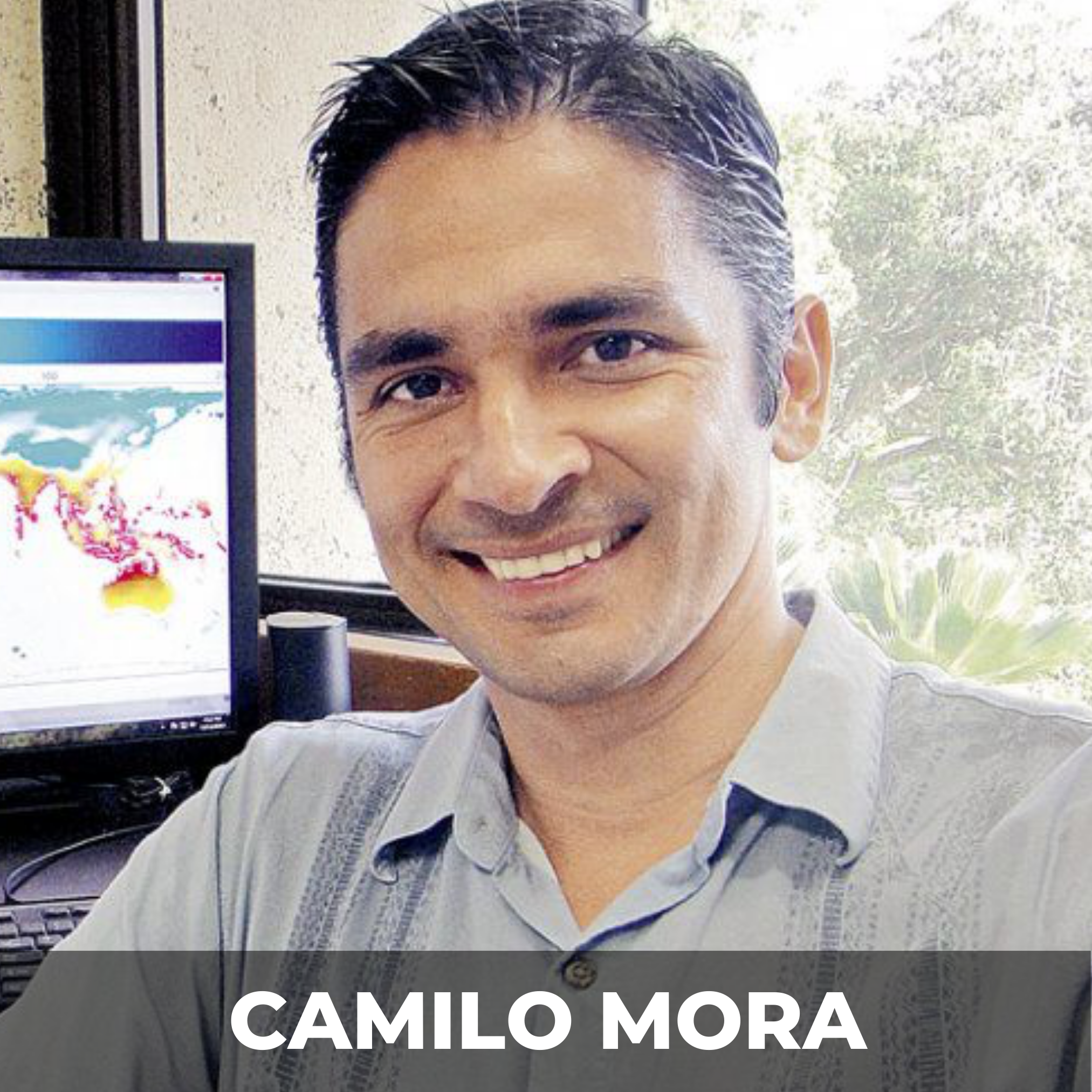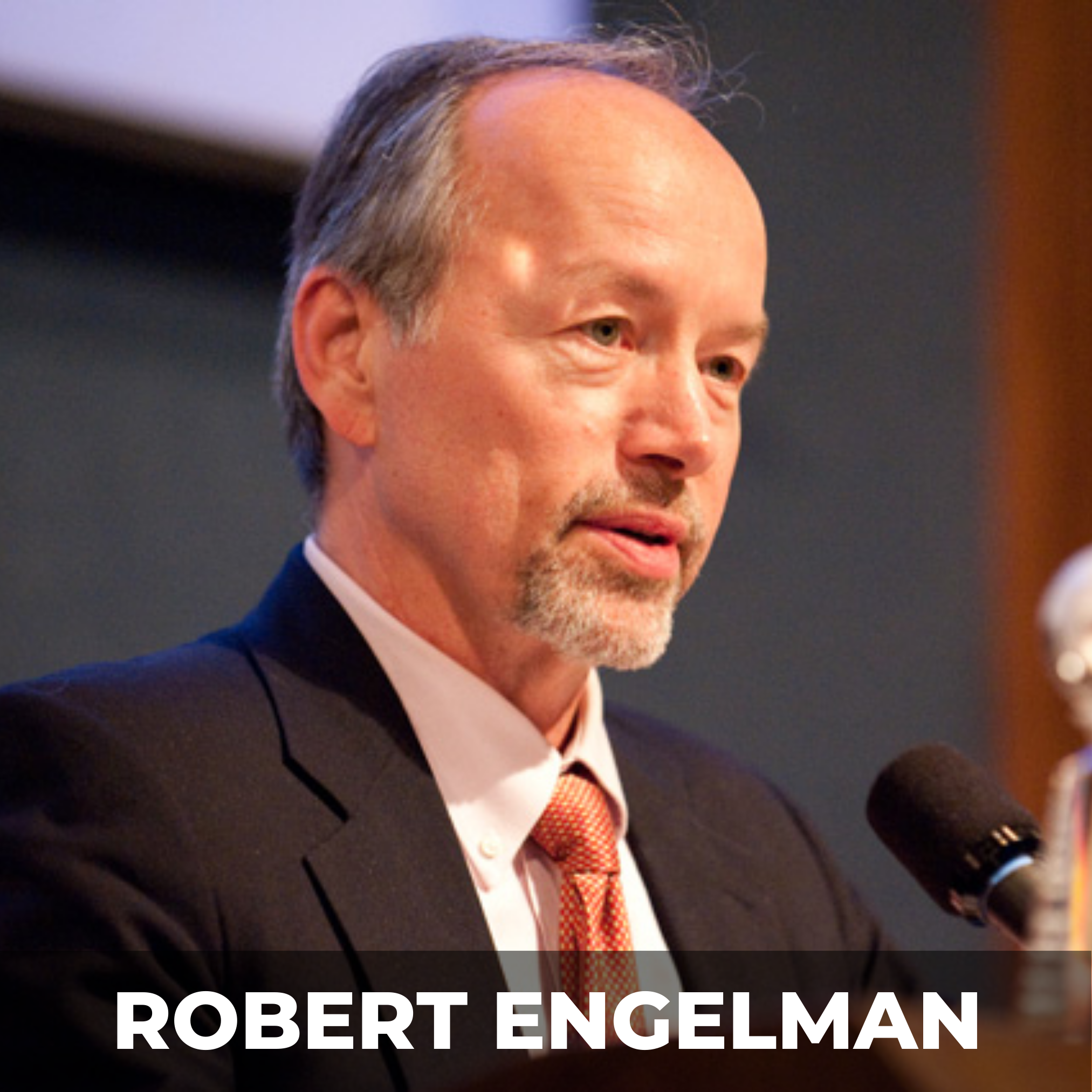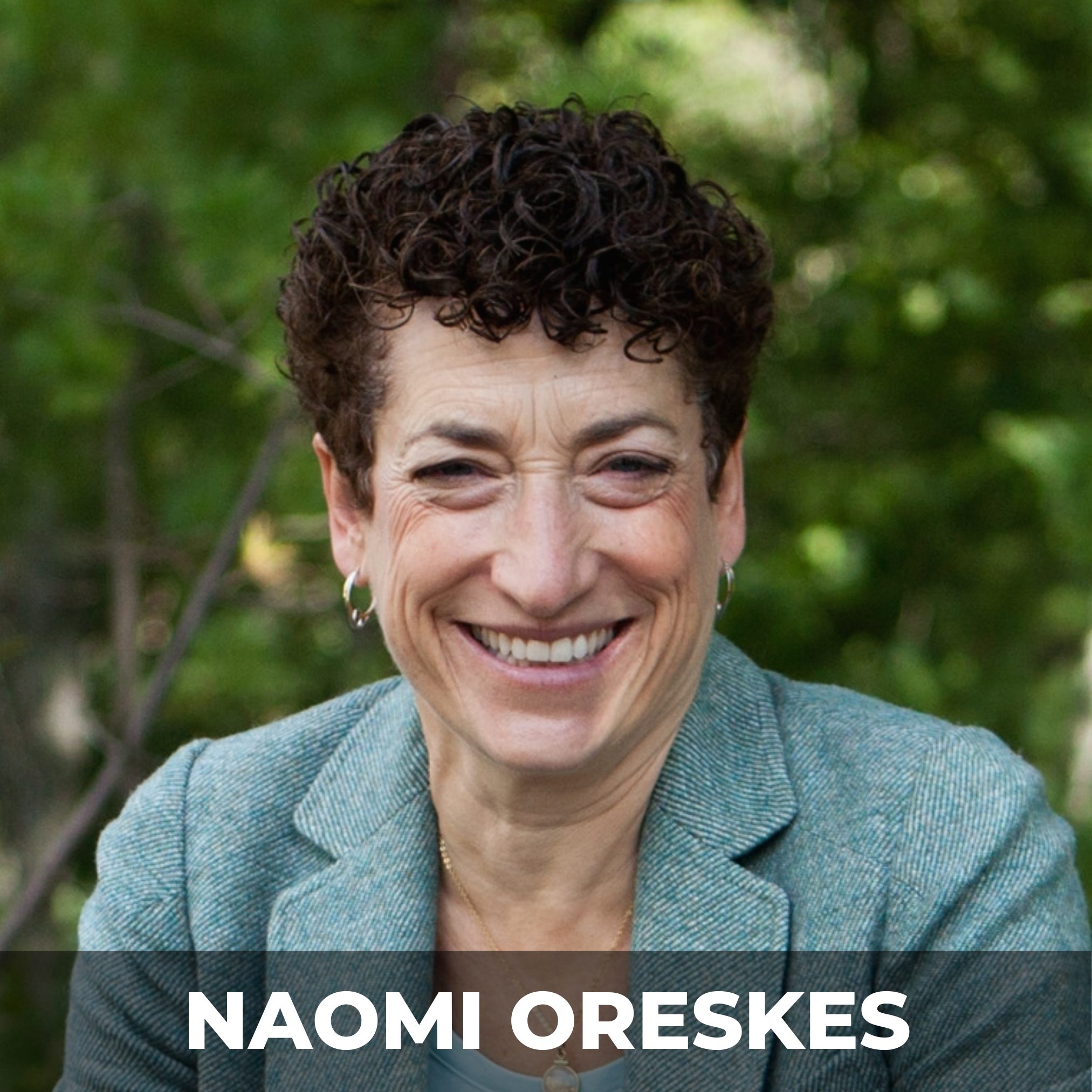A Planet of 3 Billion
We’re asking the Earth to support 80 million more humans every year, and we add to the challenge by depleting some of the needed resources from the planet each year. Meanwhile, too few us ask the question, “What is a sustainable human population?” Christopher Tucker did ask the question, went to work on it, and wrote a book about it: A Planet of 3 Billion: Mapping Humanity’s Long History of Ecological Destruction and Finding Our Way to a Resilient Future. He came up with an “optimistic” answer of 3 billion. This episode features the first half of an insightful conversation we recently had with Tucker. Our discussion includes why he avoids using the term “overpopulation” (and why we DO use it), how and why the taboo on discussion of this topic came about, and the beautiful way we can bend the curve of human population numbers. How does achieving a global average fertility rate of 1.5 by 2030 sound? Is that really so crazy? Tucker points out this is just accelerating a norm shift that’s already underway. Christopher Tucker is chairman of the American Geographical Society, and strategic advisor to the US national security community. He holds a BA, MA, and PhD from Columbia University. Chris serves on a number of boards including the United States Geospatial Intelligence Foundation and the Open Geospatial Consortium.
MENTIONED IN THIS EPISODE:
-
Chris Tucker 0:00
Hey Earth, thanks for supporting us last year. Next year, I want you to support us plus eighty million more humans ecologically. And oh, by the way, we're going to delete more of those ecological resources as we go along. So thanks, Earth.
Dave Gardner 0:15
That's not great news, but you're gonna love it when someone tells the truth and tells it in such an eye opening - duh - kind of way.
Nandita Bajaj 0:23
Yes. And those are the words of Christopher Tucker, author of A Planet of 3 Billion, Mapping Humanity's Long History of Ecological Destruction, and Finding Our Way to a Resilient Future. Hear more of his words of wisdom next on the Overpopulation Podcast.
Dave Gardner 0:49
Welcome to the Overpopulation Podcast, the podcast that dares to stand up for the right of future generations to live in a world worth inheriting. I'm your co-host, Dave Gardner, Executive Director of World Population Balance.
Nandita Bajaj 1:03
And I'm Nandita Bajaj, co-host of the Overpopulation Podcast. You can learn more about sustainable population at worldpopulationbalance.org. Do we have anything interesting in the inbox today, Dave?
Dave Gardner 1:15
Do we? We actually have an awesome email in the hopper. In fact, I think this may be our best, I'm sure this is the best listener feedback yet in the history of the Overpopulation Podcast. We got an email from Les Knight in Portland, Oregon, about our last episode, episode fifty-six, titled Good News, Bad News. Les wrote, another great podcast. A roundup of news makes an interesting show, though it's interesting when you have a guest. You mentioned it would be great to see a commercial with pregnancy tests that comes up negative as a positive. You're in luck. And Les gave us a link to a pretty entertaining video on YouTube. We'll put a link in the show notes. In fact, let's listen to just a few quick bytes from that video.
Commercial 2:04
Oh my god, I'm not pregnant! We're not pregnant! Oh, thank god! We're just not ready to have a child. I'm so proud of you! That's my boy! Oh my god baby, I'm so happy. I knew you would be. Oh my god! We're not pregnant! You're not gonna have a little sister! Yay! You are not a Grandpa! Thank you! You shouldn't have children, neither of you should have children. I'm so relieved because I, I have so many things I still have to do and I - not pregnant. Not pregnant. I don't even know if I want to have kids. We gotta be careful. We should start using two forms of birth control. Three. I love you, I love you so much.
Dave Gardner 2:54
So the name of that video is The Pregnancy Reaction Videos You Won't See by Cracked. And gosh, we've got to just give them four thumbs up. How many thumbs can we give them? At least between the two of us, four, huh Nandita?
Nandita Bajaj 3:10
Four is good.
Dave Gardner 3:12
Now Les Knight, the guy who emailed us, happens to be founder of the Voluntary Human Extinction Movement, link in the show notes, an organization that advocates voluntarily ceasing to breed in order to allow Earth's biosphere to return to good health. Had you been aware of the Voluntary Human Extinction Movement already? I bet you had.
Nandita Bajaj 3:33
I heard about them through the International Childfree Award, the annual award that's given out, and I believe in 2019 it was given to Childfree India. And I think they are big proponents of Voluntary Human Extinction Movement. That's the first time I heard it. It's a great name.
Dave Gardner 3:51
Yeah, it is. And he, you know, he gets, people tend to misinterpret and think that he's promoting mass suicide or something like that. But that's not his intention. But it's definitely an interesting perspective where human beings are kind of put in our place, aren't we? Where we're a whole lot less important than we think.
Nandita Bajaj 4:11
It's amazing how the word human extinction gets us really nervous, but losing 95% of all of wildlife due to humans is not that big of an issue.
Dave Gardner 4:23
Yep. So I think that was, I really love that video and I think we're gonna try to, you know what? I was gonna say, I think we're gonna try to set the world on fire letting them know about the video, but the world somehow beat us to the punch because it's already got 189,000 views on YouTube. Five thousand eight hundred people have voted it up, three hundred and fifty-two voted down. And and that was something I was kind of wanted to look at because I thought oh man, I'll bet this video is gonna get a lot of trashing from people who just are offended because they'll think it's, you know, anti-family or something like that. But I saw a lot of positive comments there.
Nandita Bajaj 4:59
I think it's such a wonderful depiction of really happy stories of people who are receiving negative test results from their pregnancy tests and aren't ready to have children at that point in their lives, or ever. And it's great to show that, like we spoke about in the last episode, and I think it just challenges the dominant narrative in our culture that that's the only thing that makes people happy, is to see a positive result. And all this video is doing is challenging it and letting people examining their worldviews.
Dave Gardner 5:37
Yep, yep. Brilliant. Brilliant. I know we've got a long conversation ahead of us. So I think we should head right to the, to the main topic of the day.
Nandita Bajaj 5:46
Sounds wonderful.
Dave Gardner 5:48
All right. Let's get right to it.
Nandita Bajaj 5:49
Dr. Christopher Tucker is the Chairman of the American Geographical Society and Strategic Adviser to the UN National Security community. Chris serves on a number of boards, including the United States Geospatial Intelligence Foundation, and the Open Geospatial Consortium. He is the author of A Planet of 3 Billion, Mapping Humanity's Long History of Ecological Destruction, and Finding Our Way to a Resilient Future. And if it wasn't already clear from his introduction, it is his passion for geography and our planet that has sparked his work in this area. We're excited to have you joining us.
Chris Tucker 6:28
Oh, thanks so much for the invitation. It's an honor to be with you.
Dave Gardner 6:30
That's pretty neat. It's been a long time in coming. So let's just start right off with a softball question for you. What the hell were you thinking when you decided to write this book?
Chris Tucker 6:40
Yeah, right. Well, I mean, it really all started, let's call it a long fuse to get to the bang, right? It started a quarter century ago, when I was a student at Columbia, I had the good fortune of needing to work. You know, it was a work/study kid that had to pay for his way through school. And I got a great job in the provost office for the guy that was starting the Earth Institute, what now everybody knows is the Columbia Earth Institute. Michael Crow has now been president of Arizona State for god, I think twenty years. But I was a young guy, he was a young administrator there. And he had the audacity to want to start the Earth Institute and at the inaugural lecture of the Earth Institute, Professor Joel Cohen gave a lecture entitled How Many People Can the Earth Support? It was the same title of the book that he released that year. And, yeah, as a dumb kid, I didn't know. I was just going to a lecture in a fancy building to listen to fancy people talk about important things. And it struck me during not only his lecture, but the other lectures that day, that that might be the most important question we should all be asking ourselves every day. How many people can the Earth support? But yet, I was really dissatisfied with his answer. If you've read the book, he doesn't really give it an answer. He kind of says, "You know, this much water, this many calories, you can support this many people. And with this much natural resources, and that much protein is worth this many people." And I always kind of found that unsatisfying. And it took me many, many years, finished my degrees, got a family, got a job, you know, had children, all these different things. And as I fell into the world of geography and started to appreciate the finite nature of our planet, and kind of the spatial demography, the explosion of the world population, I started realizing that there are actually methodologies and approaches for answering that question better than he did. And so I took a shot at it. I mean, it took me a quarter century. But you know, I took a shot at answering that question in my own way. And the book really was a learning journey for myself to understand those literatures, to synthesize all the data and the analysis, and put out my own answer. And there you have it.
Dave Gardner 8:48
What did you hope to accomplish with the book?
Chris Tucker 8:49
Well, I mean, a couple things. You always have those hunches. One of my professors called the intra-ocular analysis, you look at the data and see what hits you between the eyes. And what was hitting me between the eyes is, do we have a climate problem? Do we have an energy problem? Do we have a water problem? Do we have a food problem? Or do we kind of have a people problem that is driving all of those other problems? Those problems are symptoms of a larger cause, which is runaway population growth. And, you know, a lot of smart people who really care about the planet are focused on these hard, vexing issues. But yet, because we have this giant cultural blind spot, they actually don't know that they're on the whatever, the tail is wagging the dog, right? So I felt the need to graduate from, you know, bar talk with my friends over a couple beers going, "You know what I think the problem is?" To actually articulating it at a level that if somebody did it for me, I would appreciate, right? So I'm the audience for my book.
Dave Gardner 9:45
You're missing the same chromosome that Nandita and I are missing - the one that makes it easy to go through life completely oblivious to this.
Chris Tucker 9:51
Yeah, I mean. Look, it's an interesting thing, and I'm sure we'll get into it in some of your questions later, but population didn't used to be off the radar. In the mid-twentieth century, there were alarm bells ringing pretty loudly that the world's population had doubled from 1900 to let's say 1960. And they looked at that, and they saw what the projections were and said, "It's going to double again." And when you had Earth Day in 1970, fifty years ago, right? Fifty years ago last year. Population was a front and center topic and people understood that it was people who were annihilating the planet. And that was pre-climate change, really. Like climate change was just an inkling in some scientist's eye, and people really looked at the full panoply of ecological destruction, and talked about it on Earth Day, and they understood it was related to population. We can talk about kind of the weird historical turns that extracted population out of the popular discourse for let's call it at least thirty years, twenty-five years since the 1994 Cairo Conference, for sure. And we can talk about that, but I think it's back. And I appreciate what you guys have done over the years, you know, because you, look. It's been a long road to hoe, right? Keeping the faith. And somebody had to be the keeper of that knowledge, keeper of the issue, because a bunch of people I think are now dialing in and turning in to the issue and saying, "Look at all these resources that are there that I can learn really quickly from." So I'm actually quite hopeful. But it's really kind of a race against time at this point. And that, if anything, should give us all a bit of anxiety.
Nandita Bajaj 11:25
As you say, there's been a lot of work done on the overpopulation issue for decades, there's been so many books written about it. But you specifically bring a more geographical-centric lens to the book, which, as I mentioned earlier, was was a unique approach. And I wonder if you can speak a little more to that lens and how that might change our response to addressing the issue?
Chris Tucker 11:49
Sure. When you really look at the finite nature of the planet geographically, you start understanding that the human footprint on our planet is at risk of annihilating those minority of resources that we all need as a species, right? They're the resources that we, as a species, needed to even evolve on the planet in the first place, and they still sustain us. And kind of the weird thing that we're asking the planet to do for us is to not only support an additional eighty million humans every single year, right? Like hey Earth, thanks for supporting us last year. Next year, I want you to support us plus eighty million more humans ecologically. And oh, by the way, we're going to delete more of those ecological resources as we go along. So thanks, Earth. Appreciate your help. And it's a patently ridiculous thing that for some reason, you know, because it's not covered in the news, you don't see it visually on a map, people just go, "Yeah, population, consumption, whatever. They're kind of the same. So let's, let's just avoid it. And let's focus on consumption." Which of course, we're actually not focusing on either. So when somebody says, "Let's just reduce consumption and not talk about population," I'm like, "Sure, let's - but we're not. So why don't we talk about both?"
Dave Gardner 13:01
So as you mentioned, Joel Cohen broached the subject, and there have been other scientific efforts to estimate what a sustainable population of the planet would be. And they're a little bit all over the map. I think most of them tend to be fewer than 7.8 billion rather than more. But you think you found some flaws and you think you came up with the best yet method?
Chris Tucker 13:22
Yeah, you know, I'm not going to be that pushy, I guess, in asserting my intellectual dominance on this. What I did in chapter eight is, I needed to answer for myself how many people can the Earth support and how do you calculate the Earth's maximum carrying capacity? And I just did a survey of the literature. There's a lot of good work of people trying to quantify it, come to an actual number. What I found dissatisfying was how many of the methodologies were rooted. So for instance, some of the work that Holdren and Ehrlich did back in the day was focused on energy, and the context that they were in was, you know, peak oil. And there was really no such thing as scalable renewable energy. I mean, this is decades ago, right? And many of the conclusions they came to is like, "Hey, you know, we can only afford X number of kilowatts per human and that means we can only support so many humans." And I think that argument actually falls apart in the light of progress. And they were focusing on kind of the finite nature of energy and not the human footprint on a finite planet. And so I, you know, have my treatment of that. I have other treatments of other people's approaches, including more recently, the Planetary Boundary folks who are great, like thank God they're out there doing what they're doing, but when you look at the nine planetary boundaries that they articulate, one kind of alludes to geographical footprint. And I always kind of say, "Well, I bet a bunch of them were like atmospheric chemists, because it's all about how many molecules of particular kinds of atoms or molecules are in particular fluids." I'm like, "Right, but let's just look at the surface of the earth and the oceans. You can actually palpably see our human footprint, so why aren't those boundaries that they're actually talking about?" And they'll say absurd things and then again, if you even took a geography class once in your life, you know it's a patently absurd statement. But of course, in America, we defunded all geography after World War II. But that's a different riff. But what I say is, what I did in that chapter eight is, I then went to these literatures that are relatively new. And they're relatively new because space-based remote sensing, where we can actually map every square kilometer of our planet and understand what's there, and even square meters these days, we started getting better calculations of how to understand where the humans are, and what our footprint is. And there are some competing approaches to that that I grapple with. But I like to consider my approach a sympathetic amendment, a sympathetic treatment of what they've done, because they're barking up the right tree, they started asking the question. One other important one before the remote sensing is the Global Footprint Network, Mathis Wackernagel and those guys. They did an amazing job of taking economic variables and the geography of a country, right? And telling us all who is a net ecological creditor and who's a net ecological debtor. And you know, my criticism there is like, "Hey, thank you for getting geographic, but it's not fine grained enough, right?" I mean, Sudan is Sudan, but where the people live in Sudan is a small part of Sudan. So, the footprint of the people shouldn't just be aggregated at national scale. So I mean, when I look at all their calculations, I look at what Ehrlich and Holdren did and they came up with two billion, and I'm not disagreeing with two billion, I'm disagreeing with their method for getting there. And like you said, you know, a lot of the criticisms I've had, well, I actually haven't had that many criticisms, which, and I've been out there a lot, which makes me wonder whether I'm just not talking the right people. But when somebody is critical of my three billion estimate, they think I'm being too optimistic. There's very few people who have ever tried, after reading my argument, to come back and say, "You're wrong."
Dave Gardner 16:54
You must not have been interviewed by the US Chamber of Commerce or the American Enterprise Institute then.
Chris Tucker 16:59
You know, without interaction, people will say silly things. After I give my book talk, no one does. Maybe that's because they think I'm a not nice person that might beat them up or something. I mean, I'm six foot three, two hundred and ten pounds, you know, I don't know. But I don't think so. I think once the issues are put in context for people, they kind of walk away and say, "I need to go rethink my worldview." It doesn't mean they stop procreating, or stop consuming, or quit their jobs, or, you know, I don't think I've had that profound of an impact on people, honestly. But I've gone into extremely diverse communities. And I mean that by sector, by wealth, by nation, by whatever, and tool one I've gotten, "Wow, I never really thought about it that way. Maybe we need to bend the global population curve." And that's been encouraging. You know, I will say, you know, I don't use the term overpopulation and, not a criticism, it's just, you know, my intellectual project here was to answer the question, how many people can the Earth support? I got to three billion, you be the judge. And when I start with that question, people kind of nod their heads like how many? I don't know. How would I think about it? When they thought it all through, they go, "Oh, oh. I see the problem now." So it's been an interesting journey, for sure.
Dave Gardner 18:12
Well, we were gonna tell you that we named the Overpopulation Podcast just in your honor. Since you brought it up. Let's talk about that for a second. Because I've heard you say that you've invited debate.
Chris Tucker 18:26
Yeah.
Dave Gardner 18:26
Because you're, you're right. And I'm glad you've said that, that you, you're not going to insist that you have precisely the number.
Chris Tucker 18:33
Right.
Dave Gardner 18:34
That it's not really essential to have the precise number, but you're pretty sure it's under today's 7.8 billion people.
Chris Tucker 18:40
Yeah, I mean, way under. That's why I always say three billion, give or take a billion. I mean, how silly? Like what kind of issue do you deal with where you can say, give or take a billion? I mean, other than some Wall Street guys and Robin Hood and whatever. But you know, to me, if I've had credible people come to me and say, "Hey, Chris, wow, that was eye opening thing. I've always operated off of a 4.5 billion number." And then they like go and give me their whole story. And I'm like, "Oh, wow, I mean, you made a credible attempt to answer the question in your own way, marshaling data that you could find, and you came to 4.5." And they're like, "But now after hearing your thing, I think it's more like 1.5. Like, how can you even believe it's three?" And the punchline to my whole joke, if you will, right, is if you read closely, the number's actually well below two, unless you're a technological optimist, which I am. I mean, I start my book with the line, "I'm an unrepentant capitalist." And very few people in the population game, sustainability game, are willing to say that, but capitalist innovation has, in many ways, saved our planet from the path of destruction we are already on, right? I mean, we stopped burning trees because of coal. Well, turns out coal has its own issues, but we've stopped burning coal because of natural gas. Well, turns out natural gas has its own issues, but we're kind of progressively getting less noxious, but it doesn't mean like one of these things is good. So yeah, but as a technological optimist, I'm a venture capitalist, I mean, I invest money in new technologies. I've just gotten off a call with one of the big growth funds that's focusing on climate tech. And like, the stuff that's coming down the pipe is ridiculous. It's amazing. But it's still not good enough to get away with 7.7 billion and growing at eighty million year. There's no amount of technology and technological optimism that would make that math right.
Dave Gardner 20:21
Well, thanks for saying that. But we're looking forward to picking on you for being a technological optimist anyway, for getting from one and a half to three.
Chris Tucker 20:27
Go for it.
Dave Gardner 20:29
But my point was that you're, you know, you're confident that, even wildly optimistic, that we are already way past a good number, whatever that might be. And my thinking and preaching for years has always been, you know, we really don't need to know the precise number. We just need to know the direction we ought to be headed.
Chris Tucker 20:46
Right.
Dave Gardner 20:46
So why can't you say we're over pop - you know, we are overpopulated.
Chris Tucker 20:49
I would say it's my rhetorical bent to not use the word, but most of my friends in this space, Overpopulation Project, you guys, everybody. Doing great work. The facts are right, the analysis is sound. I've just found that when I'm engaging people who aren't already on the train, sometimes maybe it's a rhetorical sleight of hand I'm engaged in, I don't know. But I've found a lot of people open to going down the path with me if I take them on the journey.
Dave Gardner 20:49
Yeah.
Chris Tucker 20:49
That's it. And honestly, I feel like you need different kinds of voices in a debate to stake out different ground because no one voice can articulate everything. You know what I mean? So no, I see the work of the overpopulation community, or folks that will use that word, as extremely complementary to what I'm doing. I just kind of go at it a slightly different way, from a rhetorical frame.
Dave Gardner 21:38
So you, you mentioned it, and I think you kind of knew we'd probably circle around to it eventually, and that is the answer to a bigger question, which is why isn't this subject getting more intense attention? I think there's probably a couple of answers. What are your answers?
Chris Tucker 21:53
Yeah, I think you imply in that question, you started with, you know, how did it disappear off the radar? A couple of interesting data points that, you know, I was just answering Joel Cohen's questions. I wasn't even answering the question about the overpopulation debate in general. And so it wasn't til I published my book and started doing book talks, and people would ask me, and I was like, "Yeah, that's a great question, I'd have to go do some research." And I'd known about the Cairo Conference, I'd known about a number of things. Let's say I've dug deep over the past year to really understand how we got where we are. And you know, a couple things are fascinating. I'm a national security guy. I've spent the past twenty years in the national security community, and we focus on lethality and mobility and weapon systems and being able to deter, you know, other people's threats to America or whatever. But yet the numbers of lives we're talking about in most of those scenarios pale in comparison to the number of lives at risk in this larger debate, which I found always very troubling. But it's interesting that in response to a lot of the mid-century debate around this, and the work of John D. Rockefeller the second, and the Population Commission in 1970 that President Nixon and Congress commissioned. In 1974, there was a classified national security memo signed out by Henry Kissinger called National Security Studies Memo 200 - NSSM 200. And the people at the highest reaches of national security were taking this seriously.
Dave Gardner 23:13
Let me interrupt you and just say, congratulations. First time in the history of the Overpopulation Podcast that anyone has mentioned that.
Chris Tucker 23:20
Huh! Interesting, well, there you go. I'm winner winner chicken dinner. But, you know, that came out in 1974, signed out by President Ford and in '75. I've met the people now. I've gone digging. They were working into, well into the Reagan administration, but it was all classified. Classified projections, classified like what countries do we need to be engaging with? What do we do? How do we blunt the curve? And then it all kind of fell apart. And we can talk about why, and why in the Cairo Conference after, you know, many people don't know that the UN Commission on Population and Development - is that what it is? Has had their decadal conference since the forties, mid-forties, late forties. And even before that, the League of Nations had one, right? So in the forties, fifties, sixties, seventies, eighties, they had this conference about population and development. And in '94, it shifted. It really didn't talk about runaway population growth. It didn't talk about these curves and what are we going to do? It did a wonderful thing, and I'm not being facetious at all. It centered, for the first time, the importance of women and girls rights and their reproductive health within the international affairs community and debate, right? You're not allowed to talk about the welfare of the planet, you're not allowed to talk about the future of foreign affairs, unless you re-center the wellbeing, reproductive health of women and girls, their rights, their autonomy. So it was an amazing thing that they did in 1994. But they also just accidentally or intentionally left out the issue of runaway population growth. And that means for the past twenty-five years, we've added another two billion humans to the planet, wondering why are things getting worse and worse ecologically and climate-wise and stuff like that? And what I like to point out is for us to succeed in bending the global population curve, you did have to do what Cairo did. You do have to re-center the rights and wellbeing of women and girls first, otherwise, there is no path out, in my personal opinion. But we lost a quarter century because they said one thing that is correct and then they were silent on the other issue that, in my mind, are just two bookends of the same problem. And so for twenty-five years, well meaning people that I think are very thoughtful and working hard on important issues, because they're avoiding the issue of norm-shifting, right? "It's not our job to tell people maybe have fewer children? It's your right, just be healthy. I want you to be healthy." All those things are great, but because they're avoiding the need for norm-shifting and reproductive total fertility rate, we've had runaway population growth since 1994. And I don't think that needed to happen. So now what I think is happening is there's a whole bunch of people looking back a quarter century going, "Hey, we did the right thing - well, we did half of the right thing. We did this really important thing and now we need to revisit this." That's not public, we got a paper that I'm hoping to get out sometime soon to spur a little more, because I think we've got people moving into position like Samantha Power at USAID and Linda Thomas Greenfield at the UN. We've got some very smart, very experienced people. Linda Thomas Greenfield used to run the Population and Refugees division at state. We have people that understand these issues. The question is, where do they fit in their prioritization scheme? So I'm actually weirdly hopeful that if we could spur the right dialogue and the right tone with the right urgency that we could get there.
Nandita Bajaj 23:21
I'm really glad that you brought into focus the issue with the '94 Cairo Conference because, first of all, I want you to know that I sympathize with your views. And I also think that a great disservice was done to the very women we were trying to protect by taking population off the books. So I completely agree that that was a shame, that it didn't need to be one or the other.
Chris Tucker 27:10
That's right.
Nandita Bajaj 27:11
They are intertwined issues. And women's empowerment is very much intertwined with population control.
Chris Tucker 27:19
Right.
Nandita Bajaj 27:19
And, you know, as a result of taking that off the books, not only has the focus shifted, but also the billions of dollars that go into aid for population family planning initiatives.
Chris Tucker 27:32
Right. Yeah no, what I think is important to appreciate in all of that, right, is the silence that I think, if you take the community that was there for the Cairo Conference, there were some people that were just enthusiastic about, for the first time ever, centering women and girls wellbeing in international affairs, and they may have been singularly enthusiastic on that point, but they were doing good things. There were other folks in the corners and in the hallways, who had always wanted discussion of population kind of eliminated, right? And you also have to put in context, kind of one-child policy. You know, policies at a national scale that were kind of clearly inhumane, unethical, whatever, were, who were also a stalking horse at that moment in history and only got more. I actually shy away, you know, I said I shy away from overpopulation - I shy away from the term population control-
Dave Gardner 28:22
Good.
Chris Tucker 28:22
For a couple reasons. You know, one is, my assessment is, there have been approaches where people tried to implement a policy that says, "Here's what your fertility rate will be. And here's how we're going to implement it." And they may blunt the curve, but they don't bend the curve. And one-child policy is an example of that. But the British kind of colonial experience, I think, you know, you see a lot of the use of the word population control. And look, it's kind of a supple rhetorical twist but what I'm trying to do is get people to focus on empowering strategies. And the weird thing is, if we just forget about the negative control strategies and we talked about the affirmative empowerment strategies, every geography where women are empowered, educated, integrated into the workforce, and have access to family planning technologies that gives them, right, bodily autonomy, you have below replacement value fertility. You just do. And so, you know, you can say, "Well, Chris, that's a policy, that's a population control policy, empowering people." I go, "Well, okay. Well, as long as we just talked about empowerment and we ask the question," well, you know, I'll pause for a second. But there was a study, did you see the Lancet Journal study this summer?
Dave Gardner 30:10
Yeah.
Chris Tucker 29:27
And they did a smart move. They said, "Hey, we're gonna do a real factor analysis of the statistics driving population." And they found that the empowerment of women and girls, investment in their education and family planning, was kind of ahead of schedule, if you will. Like there was more going on than was in their models. And because of that, they said, "Wow, we think the population curve will bend, right, at 9.7 billion at 2064." And if you know the UN estimates, you're kind of like, oh my god, that would be great, like that would, that would be better. But I wrote the authors and I said, "Hey, thanks for doing that. That's really great. It's very clarifying. But you know, you are assuming certain things related to the investment in women and girls. So if we wanted to bend the global population curve earlier, how much more would we have to invest in women and girls?" And his response was, "That wasn't our research question." To which I'm kind of like, "Okay, well, it could be now. And you're the guy with the model and all of the math, so why don't you go crunch on that? Because if indeed humanity's runaway population growth is putting us in the crosshairs of ecological catastrophe and climate disaster, then, you know, I'm going to spend dollars on that. So tell me how many dollars I need to spend empowering, on empowerment strategies to bend that curve early." And that's why you know, in the Journal of Population and Sustainability in December, I wrote an article where I called for meeting a global total fertility rate of 1.5 by 2030. And people go, "Well, that's crazy." I go, "Well, is it? I'm not telling everybody to not have kids, I'm just saying on average, instead of two or three kids, on average, do one or two kids." I mean, you know, turns out in many urban areas, fertility rate's like 1.3. In complex systems, small changes can have profound effects. So set a goal, set a date, and then tell me how much money it will require to invest in empowering strategies to achieve that goal. And I still haven't gotten the guy to give me the math. And I wish I was better at math and had all the statistics. But you know, I got a PhD in political science, and I'm just not that guy.
Dave Gardner 31:33
So it's fairly easy to get people behind empowerment and education, and even to some extent, making family planning services affordable and accessible through and around the world. But it's harder to have the conversation about, quote, unquote, overpopulation. And I think, because of the change that happened in '94, and a lot of ensuing things as well, here we are today with, I'd say there's a lack of awareness.
Chris Tucker 31:57
Right.
Dave Gardner 31:58
Astonishing lack of awareness, but also where there is some alerting going on like we do, there's also a lot of denial.
Chris Tucker 32:04
Yeah.
Dave Gardner 32:05
I don't think those are necessarily related to the Cairo Conference. Do you have some thoughts about those?
Chris Tucker 32:09
Yeah, I mean, I have hunches. You know, I'm still doing my research and I learn from folks like you and everybody else I run into along the way. I used to call it the gag order, you know. There's somehow a gag order was put on, because I've talked to people at the UN and when I say runaway population growth on the phone, like their voice suddenly comes in hushed tones. I'm like, "Why did you just - I can't hear you anymore. Like, why did you lower the tone of your voice?" So sometimes I've called it the gag order, I think in the UN, in a weird way, it kind of is, because as you, but I also think it set the tone. And you had a tone set in the middle of the twentieth century by John D. Rockefeller, the Rockefeller Foundation, all the major foundations said, "Yeah, you know, they're on to something. We need to have a strategy." So the Hewlett Foundation put money into it, the Heinz foundation, but all the major foundations cared about population. And interestingly, they were still investing in population after the Cairo Conference. But it was like in the early mid-2000s, from what I can see, that a lot of those programs fell apart. And I don't know why. You know, maybe just a generational shift, like the CEO's retired and the board members moved on. And, you know. But I've heard stories that like some of the sons or grandkids of the old foundation leads who are on the board, believe in this strongly, but it's kind of like in the foundation community, there's kind of been a a whisper like, "Hey, we don't talk about that stuff. Talk only about women's reproductive health and investment in women and girls." To which I say, "I mean, okay, that's good. But, again, the two bookends have to come together." And so, when I look at these long arc of history kind of things, I think the pendulum is swinging again. And I think it is incumbent upon all of us to work in a positive and affirmative sort of way with the foundations to make them realize that you can talk about runaway population growth and not be a racist, paternalistic, jingoistic, you know, middle of the twentieth century eugenicist, right? And a lot of the roots of that, I mean, I can point to it, I know the history now. It is true, like I wouldn't want to be on the same team, I wouldn't want to be in the same club as those folks, even though they were early folks in recognizing runaway population growth as a major issue. But their worldview was off. It wasn't going to resolve the issue, and it didn't resolve the issue. So I think we have a new moment in history, we're at a new inflection point, we've established that women and girls should be the center, their wellbeing should be the center of international affairs. And now we just have to pair it with the fact that humanity's ecological footprint is annihilating our planet and we have to deal with that now. So it's morally irresponsible to not have a discussion of women and girls empowerment that doesn't also talk about the shifting of, honestly we're just talking about access tolerating a norm that we know is going to shift anyways. By 2064, it will have shifted. Urbanization of people from the countryside and subsistence farming will have shifted greatly by middle of the twentieth century. We know the norm is going to happen, so why don't we just responsibly invest in accelerating the shifting of the inevitable change in norms?
Dave Gardner 35:20
Is that what's missing? Because what I wanted to ask was, apparently, there are a number of people who think that all we have to do is just keep on using the code word women's empowerment, you know, thinking in the back of our head, it'd be good to rein in this runaway population growth. But you're telling us that's not enough?
Chris Tucker 35:37
No, it is not enough. So there's those people and then there's the Hans Roslings of the world, rest in peace. But, you know, it is look, health and wealth will bend the curve. To which I say, "When and how many people can the earth support?" Because he just like, "Oh, it's gonna bend eventually." I'm like, "After a total ecological annihilation of the planet or before, Hans?" And so I've many people, their response to me is, "Yeah, but I believe in Hans Rosling." And I'm like, "Hey, he's right. I mean, health and wealth does intersect in a way with fertility and it will bend." But kind of like that other researcher, he said that's not my research question. His research question isn't how to save the planet and make sure we're sustainable, you know, for humanity, our species, and our planet for another several centuries. His question was simply look at the intersection of health and wealth and the curve will bend. So yeah, I think those folks, they've become literate in one important research question without being literate in the other complementary research questions.
Dave Gardner 36:34
So the important note here is that if we opted to be chicken shits and just not address this issue and wait for that, for Hans Rosling's rosy vision to take place, fill us in, for the uninitiated, the new to this, what's going to happen while we're waiting for that?
Chris Tucker 36:53
Right. Yeah, yeah. And a lot of people ask me kind of the question of like, "How much is too much?" Right? Yeah, in my book, I kind of say, "We're going to hit about nine billion and bad things are gonna start happening." I always like to point out that things are already happening in terms of climate. We talk about with climate change in these complex systems, what happens is that these punctuated crises become bigger, more frequent, and higher probability, however you want to put that one in, right? We talked about that with extreme climate events, extreme weather events, because of climate. Well, it isn't just climate, right? It's happening in many other kinds of forms of ecological destruction. And by nine billion, I think we've gotten to the point where we've accumulated so much ecological debt by nine billion that the size, frequency, and probability of really big bad things that will kill lots and lots and lots of people becomes bigger. And, you know, it's interesting.
Dave Gardner 36:53
It could be apocalyptic, could it not?
Chris Tucker 36:54
Oh, yeah. Yeah, I mean, look. A lot of people are innumerate, not just illiterate, they're innumerate. And I'd like to say, I'm kind of one of those guys, you know, I did fine in high school math, but like, I don't like numbers. But some of it is just sophisticated counting that you got to do the work on, right? And it turns out that if you look at Syria, right, the conflict in Syria with ISIS. You ended up with five million people displaced out of Syria, these are round numbers, right? And five million people displaced internally in Syria. Ten million. That's it, right? And the amount of existential maneuvering that occurred in Europe because they're receiving these five million people, and the amount of trouble in the region from just ten million is enormous. So let's make that a hundred million. Let's make that the nine hundred million climate refugees that we're talking about just from sea level rise. Forget about sea level rise, let's talk about the people who aren't going to be underwater, but won't have any water or food. You know, so all of a sudden, you're talking about numbers that are inconceivable to like a modern newsman or newswoman who's reporting the news. You know, five million people from Syria. Like, bro, it's gonna be like a billion, two billion, three billion. And, you know, I'm not even trying to exaggerate. I'm just like, do some basic math. And that's where the people on the poorer end of the spectrum in the developing world are going to disproportionately face the short end of that stick in brutal, inhumane sorts of ways. I think people, you know, nobody wants to contemplate bad news. Nobody wants to think about that stuff. They just kind of put it out of their mind and go, "It's all gonna be fine." And I go, "Well, you know, if you want to put it out of your mind, do one thing for me. Help bend the total fertility rate to 1.5 by 2030." And every year, the hard question we're going to have to ask is, "Now that there's fewer people on the planet, which acreage would we like to rewild for wilderness? And, you know, which farmland that we're not using to grow corn for ethanol would we like to turn into grassland that can contribute back to the purification of our groundwater?" When I was younger, my brother pointed out, he said, "Chris, you know, life is mostly about choosing between bad and worse, not good and bad." And we have gone about choosing, in a situation where faced with bad worse, we have repeatedly chosen worse, worse, worse, worse, worse, worse, over and over and over. And there's some things that if we just chose the bad option, we'd be killing it. We'd be in a much better situation. And and so like the notion that there's good and bad like if we just did this, everything will be wonderful. Things are not going to be wonderful. We're going to be dealing with catastrophes, humanitarian disasters, for my lifetime, your you know, my children's lifetime. The question is, can we reduce their size, their frequency, and their probability? And can we shield more and more humanity from that? And the answer is, you know, if we have a declining, a decreasing population annually, as we work down our ecological debt and get down to the carrying capacity of our planet, yeah, it's gonna get better and better every year, and every year is gonna be hard work and difficult questions that we have to face as a species.
Dave Gardner 41:01
Why is that so hard to sell? Wow, that really was a great conversation, and I'm really looking forward to sharing part two in the next episode of the Overpopulation Podcast. One thing we won't do today is dissect what he said now that he's not in the room, we could talk about him. But at the end of the next episode, let's agree that we will do a little dissection.
Nandita Bajaj 41:23
I loved this part of the conversation, and I can hardly wait to continue chatting.
Dave Gardner 41:28
Great, great. So, many good reasons to make sure that you're listening to the next episode of the Overpopulation Podcast. Well, that's it for this edition of the podcast. I want to thank you, Nandita, for your partnership on this episode, for caring about the future wellbeing of all life on Earth, and for reading Chris Tucker's book.
Nandita Bajaj 41:48
It was my pleasure, Dave. Thank you everyone. Visit worldpopulationbalance.org to learn more about how we can solve world overpopulation. On the website, you can sign the Sustainable Population Pledge, listen to all our podcasts, get on our email list, you can also become a supporting member and make a donation to support our vital work.
Dave Gardner 42:11
All that at worldpopulationbalance.org. What an amazing website. But don't forget, you can also find us on Facebook and Twitter and you can write to us, we want to hear from you. And we often do share your thoughts on the podcast. So send an email to podcast@worldpopulationbalance.org.
Nandita Bajaj 42:28
And recommend this episode or podcast to friends, family, colleagues, journalists, elected representatives, anyone who you think would benefit from this. And click subscribe or follow in your podcast app so you don't miss an episode.
Dave Gardner 42:43
Great advice. Great advice. Well, I'm doing a pretty good job these days. I'm on a roll of ending each episode with a quote. So I've got one for you today, Nandita. I'll be interested in what you think. I ran across this in a recent paper written by Dr. Paul Ehrlich, the world famous Stanford biologist. He wrote, not all economists pose threats to civilization. And I just had to kind of chuckle when I read that. Because, you know, I beat up on economists all the time. And so does Paul. And I think it's more appropriate than ever in a podcast about overpopulation because we seem to be seeing a rise of economists engaging in what I'm calling depopulation panic. They're wringing their hands about a phenomenon that we should be celebrating. People are choosing smaller and smaller families. That's a really good trend. So I'm glad that Paul sees, as we do, that there are at least a few economists out there who see the big picture and see this as good news.
Nandita Bajaj 43:41
I agree, Dave. People are making choices for themselves that make them happier, that are appropriate for them. And sounding alarm bells in the name of economic growth is going in the exact opposite direction. We should be celebrating these choices.
Dave Gardner 43:56
Yeah, it makes the lives of very few people better. You know, it might improve the life temporarily of a few billionaires, you know, some growth profiteers, but the lion's share of the human race, their lives are not improving as we grow the economy and crush the planet. So it's good to know that at any rate that not all economists are illiterate about overshoot. The vast majority, though, are giving the rest of them a bad name.
Nandita Bajaj 44:23
I love that.
Dave Gardner 44:23
Yeah. I heard that said about real estate developers a long time ago. This episode has gone on long enough. So until next time, I'm Dave Gardner, reminding you we know how to end overpopulation. So let's get on with it.






